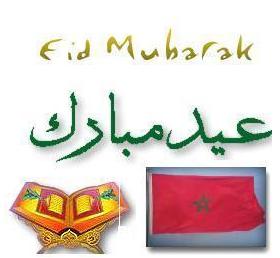Islam, one of the three major world religions, along with Judaism and Christianity, that profess monotheism, or the
belief in a single God. In the Arabic language, the word Islam means “surrender” or “submission”—submission to
the will of God. A follower of Islam is called a Muslim, which in Arabic means “one who surrenders to God.” The
Arabic name for God, Allah, refers to the same God worshiped by Jews and Christians. Islam's central teaching is
that there is only one all-powerful, all-knowing God, and this God created the universe. This rigorous monotheism, as well
as the Islamic teaching that all Muslims are equal before God, provides the basis for a collective sense of loyalty to
God that transcends class, race, nationality, and even differences in religious practice. Thus, all Muslims belong to one
community, the umma, irrespective of their ethnic or national background.
Within two centuries after its
rise in the 7th century, Islam spread from its original home in Arabia into Syria, Egypt, North Africa, and Spain to
the west, and into Persia, India, and, by the end of the 10th century, beyond to the east. In the following centuries,
Islam also spread into Anatolia and the Balkans to the north, and sub-Saharan Africa to the south. The Muslim community
comprises about 1 billion followers on all five continents, and Islam is the fastest-growing religion in the world.
The most populous Muslim country is Indonesia, followed by Pakistan and Bangladesh. Beyond the Middle East, large
numbers of Muslims live in India, Nigeria, the former republics of the Union of Soviet Socialist Republics (USSR),
and China.
One of the reasons for the growth of the Muslim community has been its openness to new members.
Children born to Muslim parents are automatically considered Muslim. At any time, a non-Muslim can convert to Islam
by declaring himself or herself to be a Muslim. A person's declaration of faith is sufficient evidence of
conversion to Islam and need not be confirmed by others or by religious authorities.
II. THE TEACHINGS OF MUHAMMAD
Around the year AD 570 Muhammad,
the founding prophet of Islam, was born in Mecca, at the time the central city of the Arabian Peninsula. Some 40 years
later Muhammad started preaching a new religion, Islam, which constituted a marked break from existing moral and social
codes in Arabia. The new religion of Islam taught that there was one God, and that Muhammad was the last in a series of
prophets and messengers. Through his messengers God had sent various codes, or systems of laws for living, culminating
in the Qur'an (Koran), the holy book of Islam. These messengers were mortal men, and they included among many others
Moses, the Hebrew prophet and lawgiver, and Jesus, whom Christians believe to be the son of God rather than a prophet.
Islam also taught that the Christian Bible (which includes the Hebrew Bible as the Old Testament and an
additional 27 books referred to as the New Testament), and the Qur'an were all holy books. According to the Qur'an,
the two earlier Scriptures had been altered over time from their original forms given by God, while the Qur'an
would remain perfect, preserved by God from such distortion. In addition to distinguishing itself from the Hebrew
and Christian traditions, the new religion taught that the God of Islam had provided humanity with the means to
know good from evil, through the prophets and the Qur'an. Therefore, on the Day of Judgment people will be held
accountable for their actions.
Muhammad's teachings met with severe and hostile opposition, and in the year
622 he left Mecca and sought refuge in the city of Yathrib, as a number of his followers had already done. Upon
Muhammad's arrival, the name Yathrib was changed to Medina (meaning “the city”). The date of Muhammad's
immigration was later set as the beginning of the 12-month lunar Islamic calendar
III. THE FIVE PILLARS
During the ten years between his arrival in Medina and his
death in AD 632, Muhammad laid the foundation for the ideal Islamic state. A core of committed Muslims was established,
and a community life was ordered according to the requirements of the new religion. In addition to general moral
injunctions, the requirements of the religion came to include a number of institutions that continue to characterize
Islamic religious practice today. Foremost among these were the five pillars of Islam, the essential religious duties
required of every adult Muslim who is mentally able. The five pillars are each described in some part of the Qur'an and
were already practiced during Muhammad's lifetime. They are the profession of faith (shahada), prayer (salat),
almsgiving (zakat), fasting (sawm), and pilgrimage (hajj). Although some of these practices had precedents in Jewish,
Christian, and other Middle Eastern religious traditions, taken together they distinguish Islamic religious practices
from those of other religions. The five pillars are thus the most central rituals of Islam and constitute the core
practices of the Islamic faith.
Many polemical descriptions of Islam have focused critically on the Islamic concept of jihad. Jihad, considered the sixth pillar of Islam by some Muslims, has been understood to mean holy war in these descriptions. However, the word in Arabic means "to struggle" or "to exhaust one's effort," in order to please God. Within the faith of Islam, this effort can be individual or collective, and it can apply to leading a virtuous life; helping other Muslims through charity, education, or other means; preaching Islam; and fighting to defend Muslims. Western media of the 20th century continue to focus on the militant interpretations of the concept of jihad, whereas most Muslims do not.
|
|
|
1
2
3
4
5
6
7
8
9
NEXT
Back Home
|
|
|
